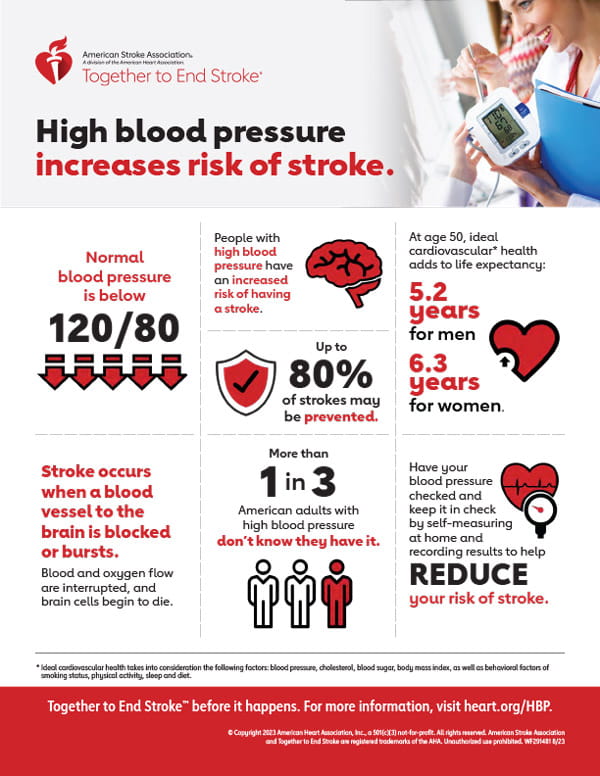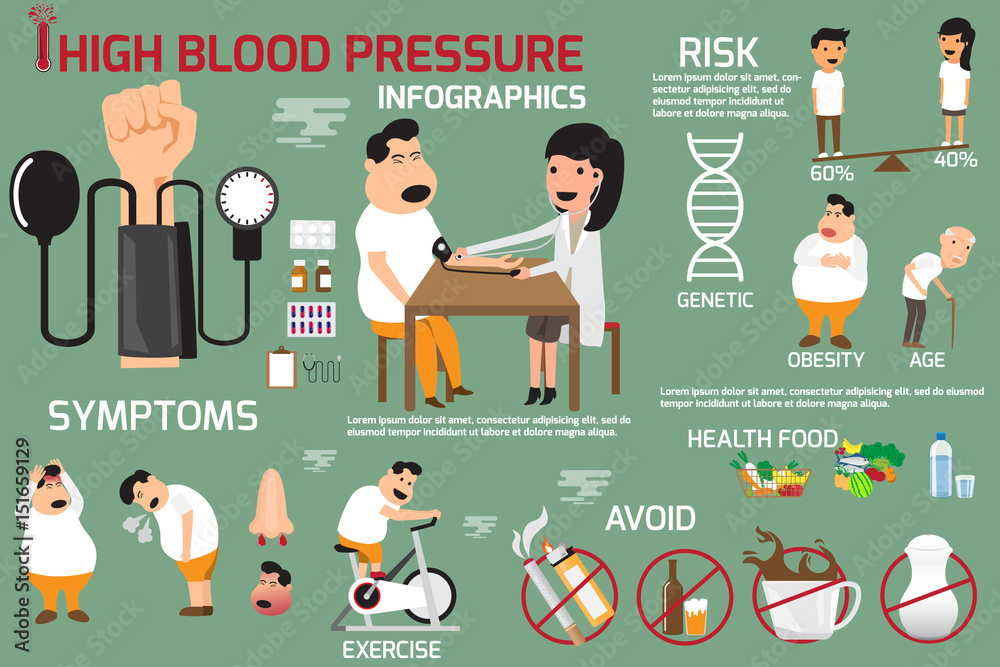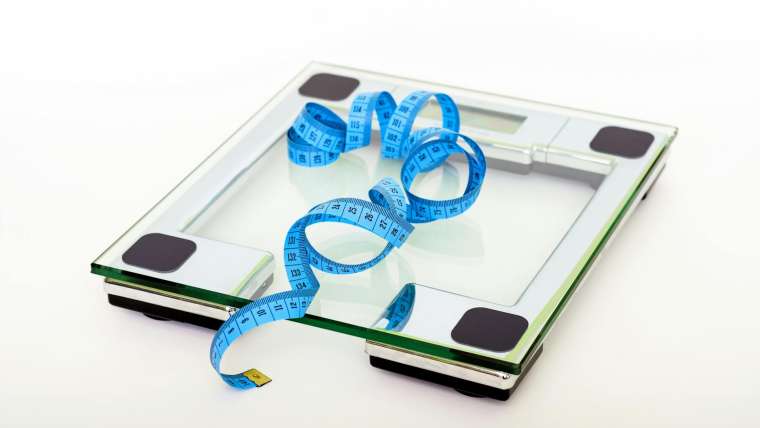Discover the surprising factors that can trigger high blood pressure and learn how to manage and prevent them effectively.
Table of Contents
- Introduction to High Blood Pressure
- How Blood Pressure Is Measured
- Normal vs. High Blood Pressure
- Common Causes of High Blood Pressure
- Foods and High Blood Pressure
- The Impact of Exercise on Blood Pressure
- When High Blood Pressure Is a Problem
- How to Tell If You Have High Blood Pressure
- Keeping Blood Pressure in Check
- Conclusion: Why Keeping Blood Pressure Normal Is Important
- FAQs About High Blood Pressure
Introduction to High Blood Pressure
In today’s discussion, we are going to explore the world of high blood pressure. But before we dive into understanding what high blood pressure means, let’s first grasp the concept of blood pressure itself.
Understanding Blood Pressure
Imagine your body as a school bus, and the blood flowing through your veins is the students inside the bus. Just like how the bus needs to move around to get students to different places, your blood needs to flow through your body to deliver nutrients and oxygen to all the different parts of your body. Blood pressure is like the force that pushes the blood through your body, making sure everything works smoothly.
What Does ‘High’ Mean Here?
When we say someone has high blood pressure, it means that the force pushing the blood through their body is stronger than it should be. It’s like pressing the gas pedal too hard in the school bus, which can be risky because it might put too much pressure on the bus. Similarly, high blood pressure can be dangerous because it can strain your heart and arteries, leading to serious health issues.
How Blood Pressure Is Measured
Have you ever wondered how doctors check your blood pressure? It’s a bit like giving your arm a gentle hug with a special cuff. When you visit the doctor, they wrap this cuff around your upper arm and then pump it up. This squeezing sensation might feel a little funny, but it’s all part of getting an important health measurement.
As the cuff squeezes, it briefly stops the blood flow in your arm. Then, the doctor slowly releases the air from the cuff while listening with a stethoscope. There are two numbers that come from this process: one on top and one on the bottom. The top number is called your systolic pressure, which measures the force of blood against your artery walls when your heart beats. The bottom number is the diastolic pressure, which measures the blood pressure when your heart is resting between beats.
Normal vs. High Blood Pressure
Understanding the difference between normal blood pressure and high blood pressure is important for staying healthy. So, let’s break it down!

Image courtesy of via Google Images
What Numbers Tell Us It’s High?
When we talk about blood pressure, we refer to two numbers. The first number is called systolic pressure, and it shows how much pressure your blood is exerting against your artery walls when your heart beats. The second number, known as diastolic pressure, measures the pressure in your arteries when your heart rests between beats.
For adults, a normal blood pressure reading is typically around 120/80 mmHg. If the numbers start to creep up consistently, it could mean you have high blood pressure. High blood pressure, also called hypertension, is when your blood is pumping through your arteries with too much force, which can put you at risk for heart disease, stroke, and other health issues.
So, it’s essential to keep an eye on those numbers and make healthy choices to prevent high blood pressure from becoming a problem!
Common Causes of High Blood Pressure
High blood pressure, also known as hypertension, can be caused by a variety of factors. Understanding why blood pressure goes up is essential in managing this condition.
Why Does Blood Pressure Go Up?
There are several reasons why someone might develop high blood pressure. One common cause is unhealthy lifestyle habits, such as a diet high in salt and fats. Consuming too much salt can lead to the body retaining water, which increases blood volume and subsequently raises blood pressure. Additionally, being overweight or obese can put extra strain on the heart, causing blood pressure to rise.
Genetics also play a role in hypertension. If someone in your family has high blood pressure, you may be more likely to develop it as well. Other medical conditions, such as kidney disease, thyroid problems, or sleep apnea, can also contribute to high blood pressure.
In some cases, lifestyle choices like smoking and excessive alcohol consumption can lead to hypertension. Lack of physical activity and chronic stress are also known to increase the risk of developing high blood pressure.
Understanding these common causes of high blood pressure can help individuals make healthy choices to manage their blood pressure levels and maintain good overall health.
Foods and High Blood Pressure
When it comes to managing high blood pressure, the foods we eat play a crucial role. Some foods can make our blood pressure go up, while others can help keep it in a healthy range. Let’s dive into how certain foods can affect our blood pressure for better or for worse.

Image courtesy of via Google Images
Snacks to Avoid
Snacking is a common part of our daily routine, but some snacks can be harmful if you have high blood pressure. Foods high in salt, sugar, and unhealthy fats can cause your blood pressure to spike. Potato chips, cookies, and sugary drinks are examples of snacks that you should try to avoid or eat in moderation to keep your blood pressure in check.
Good Foods for Your Heart
On the other hand, there are foods that can benefit your heart and help lower your blood pressure. Omega-3 fatty acids, found in foods like salmon, chia seeds, and walnuts, have been shown to support heart health and reduce blood pressure levels. Additionally, magnesium-rich foods such as spinach, almonds, and avocados can also have a positive impact on blood pressure regulation. Including these heart-healthy foods in your diet can be a delicious way to support your overall health.
The Impact of Exercise on Blood Pressure
Exercise plays a crucial role in keeping our bodies healthy, and it also has a significant impact on our blood pressure. When we talk about blood pressure, we are referring to the force of blood against the walls of our arteries. High blood pressure means this force is consistently too high, which can be harmful to our bodies.
Get Moving to Lower the Numbers
One of the best ways to help lower high blood pressure is through regular exercise. When we engage in physical activities like running, biking, or even playing sports, our heart gets stronger. A stronger heart can pump blood more efficiently, which can help decrease the pressure on our artery walls.
Exercise also helps to improve our overall cardiovascular health. By strengthening our heart and improving blood circulation, we can reduce the strain on our arteries. This, in turn, can lead to lower blood pressure readings.
Additionally, physical activity helps to maintain a healthy weight. Being overweight or obese can contribute to high blood pressure. Exercise can help us shed excess pounds, which can lead to a decrease in blood pressure numbers.
It’s important to note that different types of exercise can have varying effects on blood pressure. Aerobic activities like jogging and swimming are particularly effective in lowering blood pressure. Strength training exercises, such as weightlifting, can also be beneficial.
Incorporating regular exercise into our daily routine not only helps in lowering blood pressure but also contributes to our overall well-being. So, grab your sneakers, head outside, and get moving to keep those blood pressure numbers in check!
When High Blood Pressure Is a Problem
High blood pressure, also known as hypertension, can become a serious problem if left unaddressed. While many people think of high blood pressure as something that only affects adults, it can also be an issue for younger individuals like yourself. This is why it’s essential to understand the risks associated with high blood pressure and take steps to manage it effectively.
| Triggers | Description |
|---|---|
| Unhealthy Diet | Consuming high amounts of sodium, saturated fats, and cholesterol can lead to high blood pressure. |
| Physical Inactivity | Not getting enough exercise can contribute to high blood pressure as it can lead to weight gain and poor circulation. |
| Smoking | Smoking can damage blood vessels and constrict blood flow, increasing the risk of high blood pressure. |
| Stress | Emotional stress can cause temporary spikes in blood pressure. Chronic stress can lead to long-term high blood pressure. |
| Genetics | Family history of high blood pressure can increase the likelihood of developing the condition. |

Image courtesy of via Google Images
How to Tell If You Have High Blood Pressure
High blood pressure is often referred to as the “silent killer” because it usually doesn’t show any obvious symptoms. So, how do you know if you have high blood pressure? Let’s find out!
The Silent Culprit
Unlike a runny nose or a cough that give clear signals that you are sick, high blood pressure doesn’t always make itself known. That’s why it’s essential to get regular check-ups with a doctor who can measure your blood pressure and tell you if it’s too high.
When you visit the doctor, they will use a cuff that goes around your arm to check your blood pressure. It’s a quick and painless process that gives them important numbers to determine if your blood pressure is within a healthy range.
Keeping Blood Pressure in Check
It’s important to keep an eye on our blood pressure to make sure it stays at a healthy level. By adopting simple habits and making a few changes in our daily routine, we can help maintain lower blood pressure and prevent it from creeping up into the high range.

Image courtesy of via Google Images
Everyday Tips and Tricks
One of the easiest ways to keep our blood pressure in check is to watch our diet. Eating foods that are high in salt or sugar can contribute to high blood pressure. Instead, try to include more fruits, vegetables, and whole grains in your meals. Foods rich in omega-3 fatty acids, like fish, nuts, and seeds, can also help lower blood pressure.
Regular physical activity is another key factor in maintaining healthy blood pressure. Whether it’s playing outside with friends, riding your bike, or joining a sports team, getting your body moving can help lower your numbers. Aim for at least 60 minutes of active play every day to keep your heart healthy.
Reducing stress and getting enough sleep are also important for overall well-being and can help keep your blood pressure in check. Make sure to take breaks throughout the day to relax and unwind. Practice deep breathing or try mindfulness exercises to calm your mind and body.
Finally, staying hydrated by drinking plenty of water is essential for good health, including maintaining healthy blood pressure. Water helps your body stay hydrated, which in turn supports proper blood flow and helps keep your numbers where they should be.
Conclusion: Why Keeping Blood Pressure Normal Is Important
As we have learned throughout this blog post, maintaining normal blood pressure is crucial for our overall health and well-being. High blood pressure, also known as hypertension, can lead to serious complications if left uncontrolled. Therefore, it is important to understand why keeping our blood pressure in check is essential.
Preventing Health Issues
First and foremost, normal blood pressure helps prevent various health problems such as heart disease, stroke, and kidney issues. By keeping our blood pressure within a healthy range, we can reduce the risk of developing these conditions.
Promoting Longevity
Additionally, maintaining normal blood pressure levels can contribute to a longer and healthier life. High blood pressure can strain our heart and blood vessels, increasing the likelihood of cardiovascular issues. By keeping our blood pressure under control, we can support our overall longevity and quality of life.
Enhancing Daily Well-Being
Furthermore, normal blood pressure allows us to feel our best on a day-to-day basis. When our blood pressure is too high, it can cause symptoms like headaches, fatigue, and dizziness. By managing our blood pressure effectively, we can enjoy improved energy levels and well-being.
Overall, maintaining normal blood pressure is not just about numbers on a monitor—it’s about taking care of our bodies and ensuring we can live life to the fullest. By making healthy choices, staying active, and monitoring our blood pressure regularly, we can prioritize our health and well-being for years to come.
FAQs About High Blood Pressure
This section answers common questions readers might have about high blood pressure.
What Is the Best Thing to Drink If You Have High Blood Pressure?
For those with high blood pressure, the best thing to drink is water. Staying hydrated is essential for your overall health and can help lower blood pressure. Additionally, herbal teas and skim milk can be good alternatives to sugary drinks or caffeinated beverages that may spike blood pressure levels.
Can High Blood Pressure Make You Feel Tired?
Yes, high blood pressure can make you feel tired. When your blood pressure is high, it can put a strain on your heart, making it work harder than usual. This extra effort can lead to feelings of fatigue or tiredness. It’s important to monitor your blood pressure and consult with a healthcare provider if you experience persistent tiredness.
Will I Have High Blood Pressure Forever?
Having high blood pressure doesn’t necessarily mean you will have it forever. With lifestyle changes such as a healthy diet, regular exercise, and managing stress levels, you can lower your blood pressure and keep it in a healthy range. However, some individuals may require medication to control their blood pressure long-term. It’s crucial to work closely with your doctor to develop a personalized plan for managing your blood pressure effectively.





